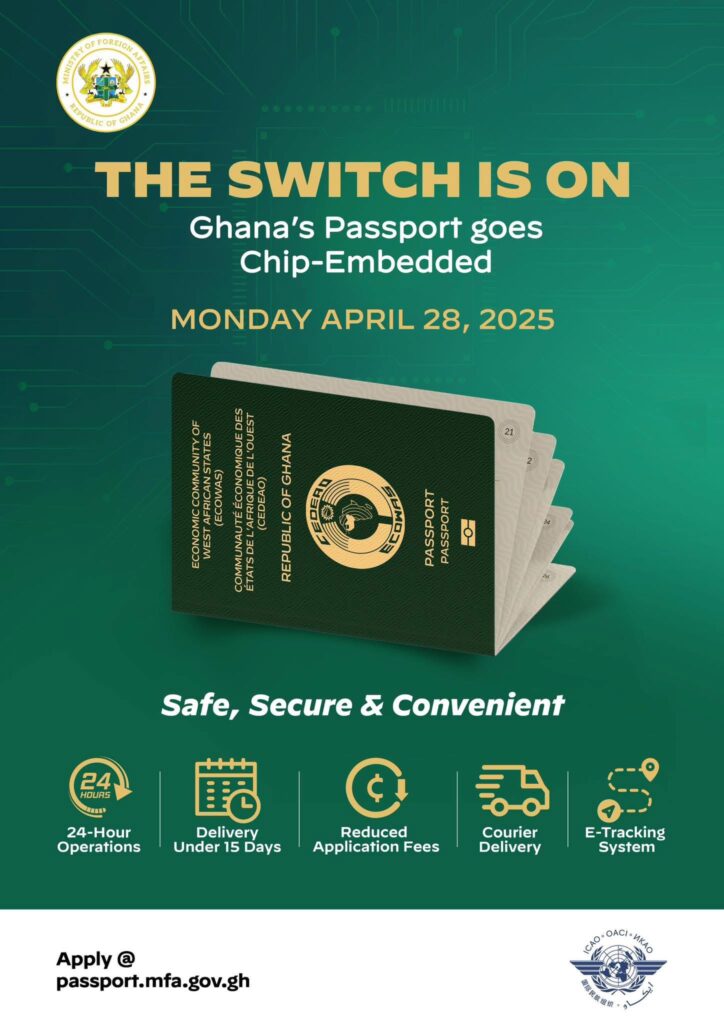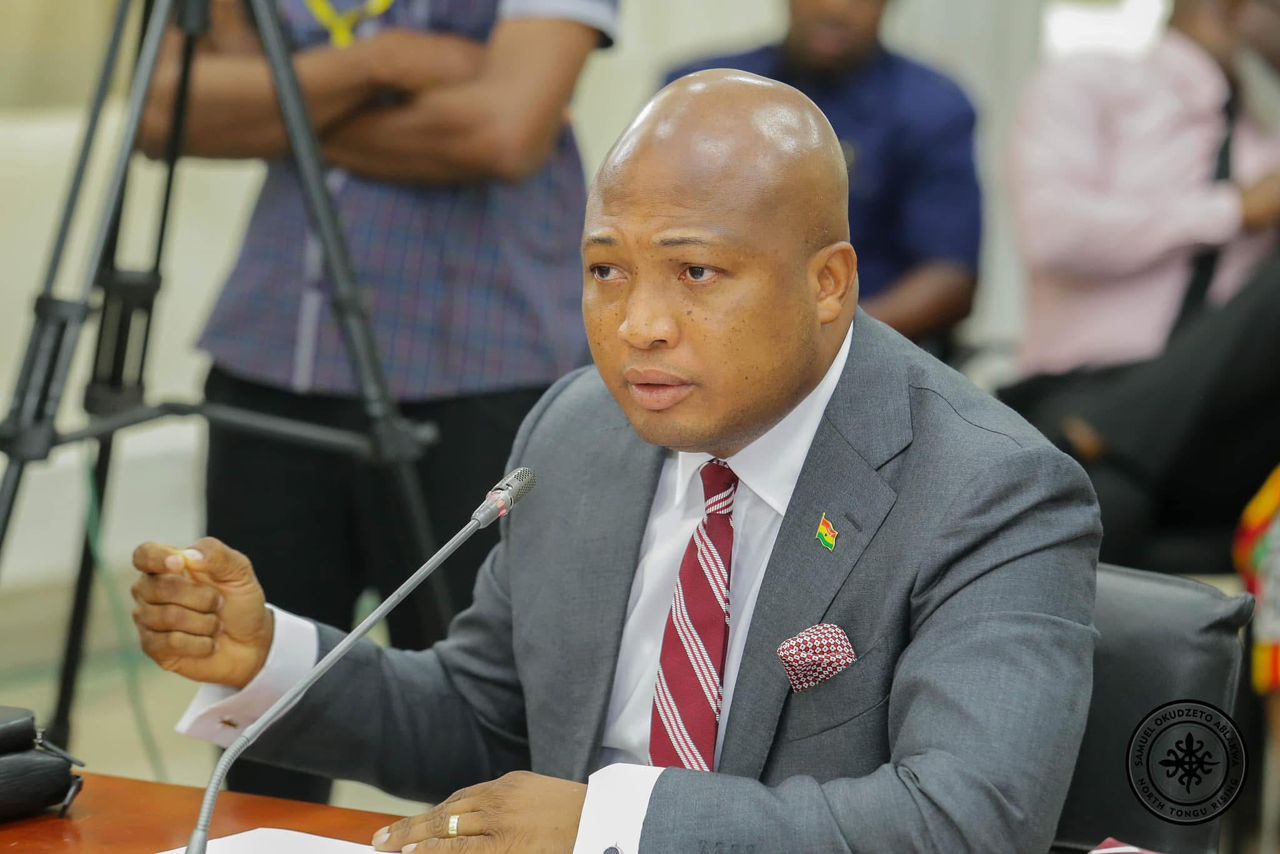In a major announcement that signals a new era for passport acquisition in Ghana, Hon. Samuel Okudzeto Ablakwa, Member of Parliament for North Tongu and minister for Foreign Affairs took to his Facebook page today, Thursday, April 24, 2025, to unveil a bold set of reforms aimed at transforming the Passport Office into a model of efficiency and convenience.
“We promise, we deliver,” he stated,the post outlined six key initiatives that are set to take effect from Monday, April 28, 2025. These reforms, according to Ablakwa, are a fulfillment of government’s commitment to improve public service delivery and meet the expectations of Ghanaians at home and abroad.
Top on the list is the introduction of chip-embedded passports, aligning Ghana with international standards and offering citizens enhanced security and digital capabilities. This upgrade is not just cosmetic it represents a leap forward in secure identity verification and global travel readiness.
Additionally, in an unprecedented move, passport offices across the country will begin operating 24 hours a day. This shift to round-the-clock service is expected to drastically reduce waiting times, eliminate congestion, and offer applicants more flexibility, especially those with demanding schedules.
The MP also announced the launch of a direct delivery system through a trusted courier service, allowing applicants to receive their passports right at their homes or offices. Coupled with a newly introduced e-tracking system, citizens can now follow every stage of their passport processing online from application to delivery.
Even more impressive is the promise of passport delivery within 15 days, marking a sharp improvement in turnaround time and eliminating the long-standing delays that have plagued the system for years.
Rounding off the announcement was news of a reduction in application fees from GHS500 to GHS350. While this fee cut will only take effect after Parliament returns from recess and amends the Fees and Charges Act, it signals a clear intention to make essential services more affordable for the average Ghanaian.







































